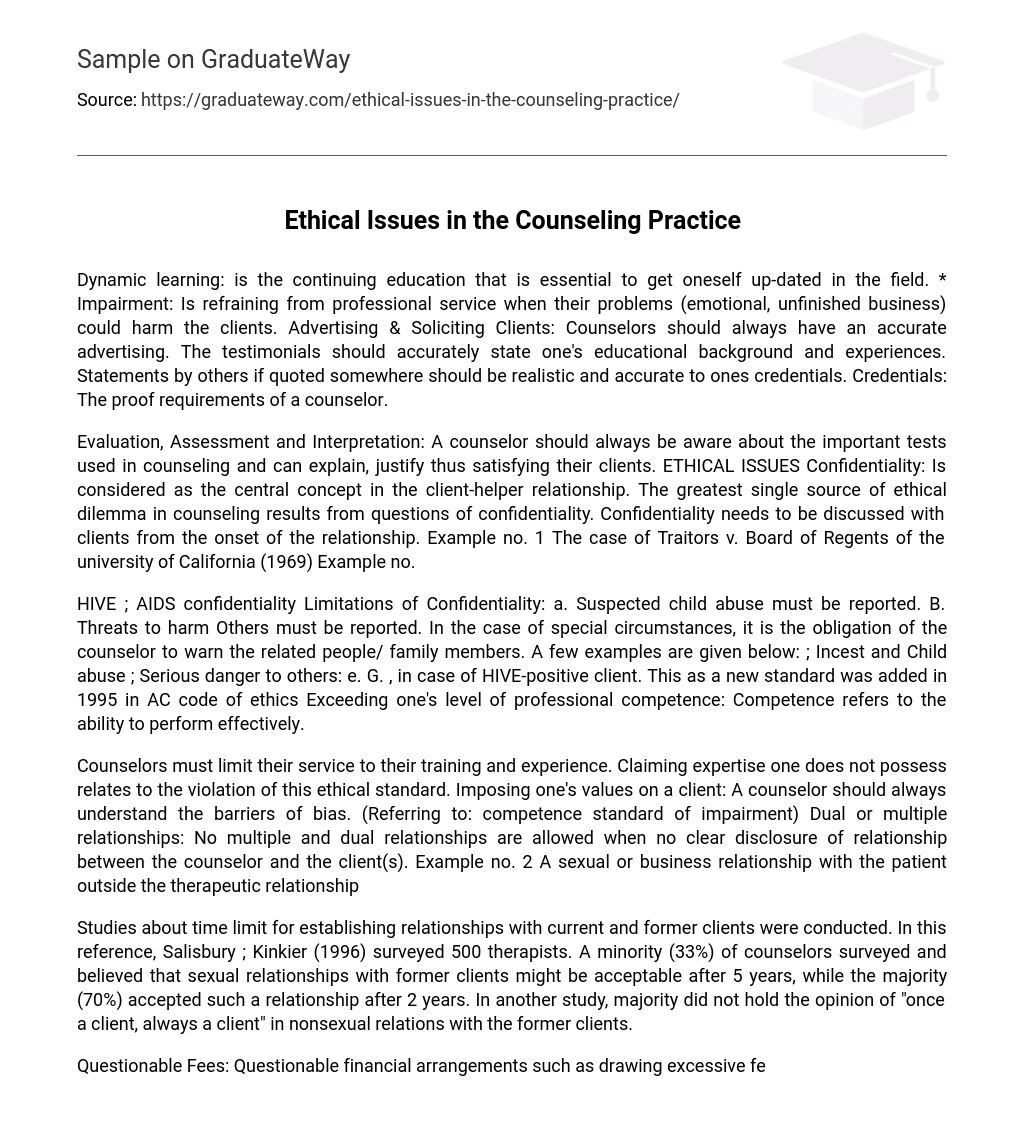Dynamic learning: is the continuing education that is essential to get oneself up-dated in the field. * Impairment: Is refraining from professional service when their problems (emotional, unfinished business) could harm the clients. Advertising & Soliciting Clients: Counselors should always have an accurate advertising. The testimonials should accurately state one’s educational background and experiences. Statements by others if quoted somewhere should be realistic and accurate to ones credentials. Credentials: The proof requirements of a counselor.
Evaluation, Assessment and Interpretation: A counselor should always be aware about the important tests used in counseling and can explain, justify thus satisfying their clients. ETHICAL ISSUES Confidentiality: Is considered as the central concept in the client-helper relationship. The greatest single source of ethical dilemma in counseling results from questions of confidentiality. Confidentiality needs to be discussed with clients from the onset of the relationship. Example no. 1 The case of Traitors v. Board of Regents of the university of California (1969) Example no.
HIVE ; AIDS confidentiality Limitations of Confidentiality: a. Suspected child abuse must be reported. B. Threats to harm Others must be reported. In the case of special circumstances, it is the obligation of the counselor to warn the related people/ family members. A few examples are given below: ; Incest and Child abuse ; Serious danger to others: e. G. , in case of HIVE-positive client. This as a new standard was added in 1995 in AC code of ethics Exceeding one’s level of professional competence: Competence refers to the ability to perform effectively.
Counselors must limit their service to their training and experience. Claiming expertise one does not possess relates to the violation of this ethical standard. Imposing one’s values on a client: A counselor should always understand the barriers of bias. (Referring to: competence standard of impairment) Dual or multiple relationships: No multiple and dual relationships are allowed when no clear disclosure of relationship between the counselor and the client(s). Example no. 2 A sexual or business relationship with the patient outside the therapeutic relationship
Studies about time limit for establishing relationships with current and former clients were conducted. In this reference, Salisbury ; Kinkier (1996) surveyed 500 therapists. A minority (33%) of counselors surveyed and believed that sexual relationships with former clients might be acceptable after 5 years, while the majority (70%) accepted such a relationship after 2 years. In another study, majority did not hold the opinion of “once a client, always a client” in nonsexual relations with the former clients.
Questionable Fees: Questionable financial arrangements such as drawing excessive fees. One selected example is bartering which is stated earlier) Improper advertising of credentials: Credential should always be accurate when it comes to advertising. Informed Consent: Involves the rights of clients to be informed about what their relationships with the counselor will entail and to make autonomous decisions. This is usually comprehensive written statements are used. (AC Code of Ethics) A counselor should inform the client’s consent clearly, empowering them and building a trusting relationship.





